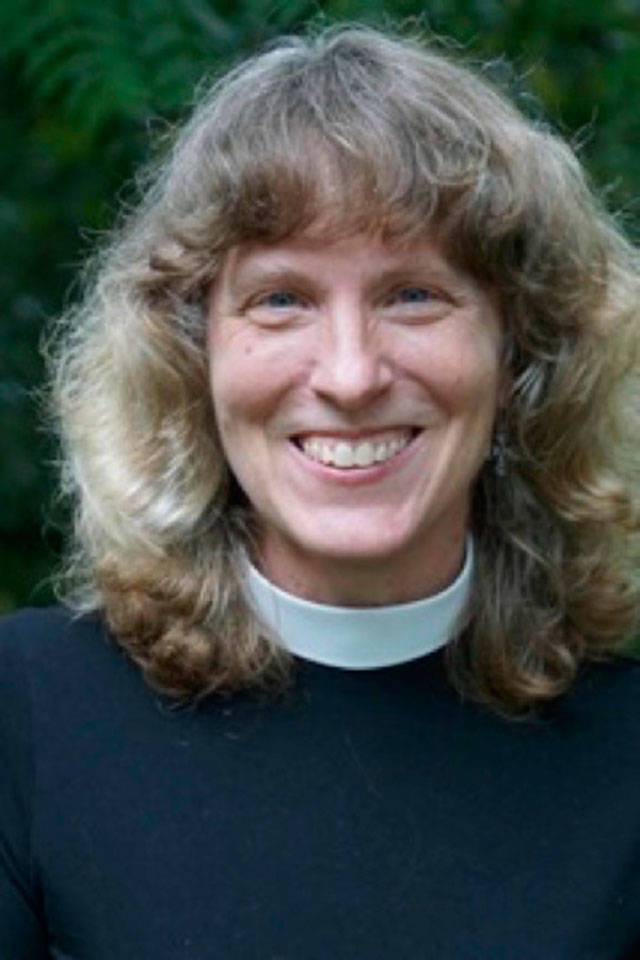I am a priest, a former medical examiner in Washington DC, and a mother of African American children. As a mother of biracial children, I had the burden that you hear Black women explain— fearing for my children’s lives all the time, but my own experience growing up white was no help to them. Although I chose their father, and I chose my career, the sheer number of African Americans I autopsied who were killed by gun violence was a painful backdrop to my experience of motherhood. The “What ifs” have always been before me.
When people learn that I’m a priest, and was a medical examiner, they often want to know “what happened?” There was no single negative event to explain the career shift. The work was fulfilling. I felt I did a job that was necessary and often helped provide justice and answers to those who needed them — it was a calling, just as is being a priest. But there was a day I recall: three young African American men – most no more than 20 – who occupied my tables in the morgue. At some point, the female detective in attendance said: “The kids on the streets are not scared to die, they are scared to live.”
In some way, the time simply came, after so much time serving the dead, that I needed to be with, and serve, the living.
If some African Americans are more scared to live than to die, then this is because they have been told too many times in too many ways that their lives don’t matter. Not everyone does, but I find it easy to get behind the concept that Black Lives Matter. We focus on Black lives, rather than all lives, because Black lives are the ones being systematically devalued. To that end, we certainly have to change our policing so that police do not have their knees on our brother or sister; but IF we can change policing, then we also need to level the playing field. From slavery through the civil rights movement, and to the present day, the playing field has never been close to level. This is not just so with the poor, on whom my own prior work was often focused. As a mother of black children and as a citizen, I see it applied to Black and brown people across the board.
We cannot expect a change in policing to fix everything. If housing is red-lined so that schools are abysmal … if safe housing options are limited for those of color … if a person is discriminated against because of race when at the bank for a loan … if friends die frequently in gunfire or are systematically incarcerated … the playing field is not level. And in the worst cases, young Black people are unafraid to die because the alternative seems untenable. The protesters say Black Lives Matter; society by these metrics still says otherwise.
In the baptismal covenant found in the Episcopal prayer book, there is a question: “Will you strive for justice and peace among all people, and respect the dignity of every human being?” We Christians think that to do so is an essential act of faith, though of course, we struggle to live up to this call, as everyone does. I know well that in the Pacific Northwest having any faith is not the norm; however, if one has any sense of human life as a moral life, then this question in our prayer book is a question for all, religious or not. Being “colorblind” and “not racist” is not enough; we must SEE our brothers and sisters; SEE the injustice toward them and work actively AGAINST racism, however we can. We have to be active—writing, working, giving wherever we can, with God’s help, or with the strength of our highest moral calling to be humane toward one another.
Sarah Colvin is the priest at Church of the Holy Spirit, Vashon. She began her ministry here in September 2018. She is a physician and served as Deputy Chief Medical Examiner of the Washington, DC office from 2000-2011. She has two adult, biracial children (Black) in their 20s, who live on the East Coast.



